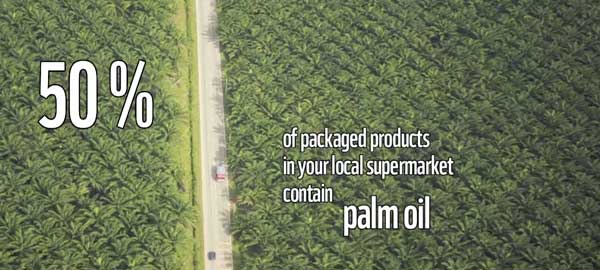The production of palm oil, widely used in the alimentary and cosmetic industries, heavily impacts the environment but also brings good revenues to the cultivators. To try and develop a sustainable production of palm oil, WWF created a label for environmental-friendly production and raises awareness, notably through this video.
Challenges of palm oil production
- Palm oil is a major product used in the agro-alimentary, cosmetic and healthcare industries, contained in 50% of packaged consumer product
- The global demand for palm oil is growing and generates massive interest to increase production
- The wild destruction of primary forest to gain land for culture becomes a major problem, especially in Indonesia where several endangered animal species could disappear because of the loss of habitat
- The production of palm oil provides good sources of revenues to population that can then escape poverty
Indonesia and Malaysia are, by far, the 2 largest producers of palm oil in the world
The RSPO certification for palm oil production
WWF was the origin of a Roundtable on Sustainable Palm Oil – RSPO, to create a certification for companies and small holder producers, that implies a reduction in the use of chemicals and protection of natural eco-systems. The RSPO farming methods also helps improve yields, increasing profits and limiting the need for expansion of plantations into primary forests.
The RSPO certificate’s success depends on the support from consumers.
Learn more on palm oil at the WWF website.









